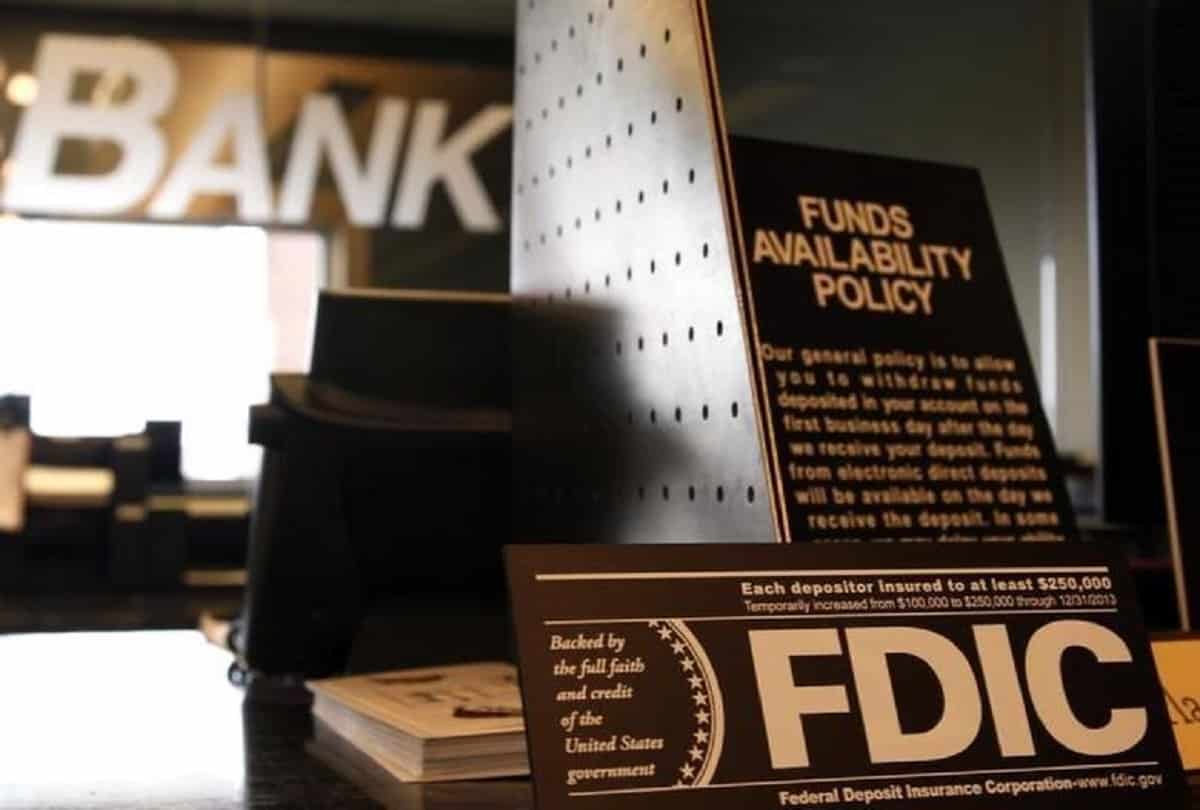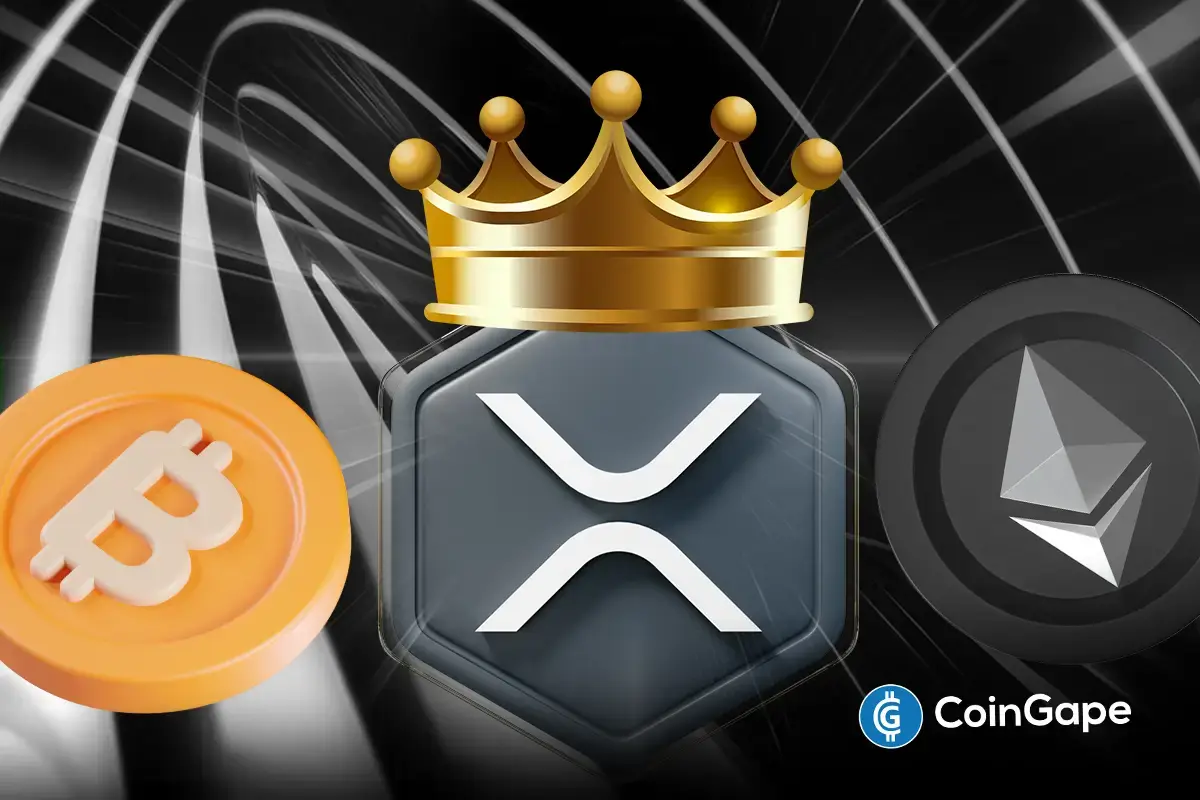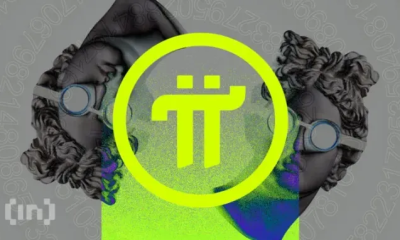Regulation
Samourai Wallet co-founder released on $1M bond after pleading not guilty


- Samourai Wallet founders have been charged with money laundering and operating an unlicensed business.
- Keonne Rodriguez, one of the co-founders, was released on a $1M bond after pleading not guilty in NYC court.
- The legal proceedings raise concerns about the future of non-custodial crypto services in the U.S.
During an appearance at the U.S. District Court for the Southern District of New York on Wednesday, Samourai Wallet co-founder Keonne Rodriguez entered a plea of not guilty to the charges brought against him and his associate William Hill and an assistant U.S. Attorneys agreed to the $1 million bond, with travel restrictions.
The lawsuit against Rodriguez and his associate William Hill alleges that Samourai Wallet facilitated over $100 million in money laundering transactions from illegal dark web markets. The two were arrested on April 24 in different jurisdictions.
Keonne Rodriguez’s bail terms
Despite being released on a $1 million bond, Rodriguez was restricted to only travel to certain areas of New York and Pennsylvania. He will be confined to his residence in Harmony, Pennsylvania, and required to wear a location monitoring device.
Additionally, Rodriguez is prohibited from engaging in any cryptocurrency transactions without prior approval from the court.
Rodriguez’s case is scheduled to proceed in the Southern District Court of New York, with Rodriguez set to appear again on May 14 with the involvement of Judge Richard M. Berman, known for presiding over high-profile cases, adding to the weight of the proceedings.
The outcome of the legal proceedings against could have far-reaching implications for the cryptocurrency industry.
William Hill, the co-accused and chief technology officer of Samourai Wallet, despite being arrested on the same day as Rodriguez has not yet been presented in a any U.S. courtroom. This could be because of Hill having been arrested in Portugal meaning authorities are possibly working through extradition proceedings.
Implications of the Samourai Wallet legal proceedings
The arrests and subsequent legal proceedings against Rodriguez and Hill have sparked debates regarding the definition of non-custodial wallets as money service businesses.
The allegations of Samourai Wallet facilitating money laundering transactions from illegal dark web markets raise questions about the broader implications for self-custodial tools in the cryptocurrency ecosystem.
As reported earlier, Self-custodial crypto wallets like Wasabi Wallet and Phoenix have gone ahead to restrict U.S. users fearing legal proceedings following the arrest and prosecution of the Samourai Wallet founders and a possible Metamask investigation.
The case challenges the interpretation of guidelines issued by the Financial Crimes Enforcement Network (FinCEN) regarding money transmission services with the Department of Justice (DOJ) arguing that the operation of Samourai Wallet’s services, including the broadcasting of transactions and collection of fees, falls within the scope of a money service business.
The indictment also raises concerns about potential efforts to KYC (Know Your Customer) the Bitcoin network, with implications for miners, node operators, and other entities involved in cryptocurrency transactions.
The FBI has already issued a public service announcement urging caution regarding cryptocurrency money service businesses that do not require KYC information.
Regulation
US SEC Drops Charges Against Hawk Tuah Girl Hailey Welch

Hawk Tuah girl Hailey Welch, known for her association with the controversial $HAWK token, has been cleared of any wrongdoing after a lengthy investigation by the U.S. Securities and Exchange Commission (SEC). The SEC has decided not to press charges against Welch in connection with the rapid rise and subsequent collapse of the meme-based cryptocurrency.
US SEC Investigation Into Hawk Tuah Girl Concludes Without Charges
The SEC had launched an investigation into the $HAWK token after its dramatic price drop. The token, which was linked to Welch’s viral persona, initially saw a market cap surge to $490 million before crashing by over 90%. Investors who were impacted by the crash filed a lawsuit against those behind the project, alleging that the coin had been promoted and sold without proper registration.
Hawk Tuah girl Hailey Welch, who cooperated fully with the investigation, expressed relief after the SEC’s decision. “For the past few months, I’ve been cooperating with all the authorities and attorneys, and finally, that work is complete,” Welch told TMZ.
Her attorney, James Sallah, confirmed that the SEC had closed the case without any findings against her, adding that there would be no monetary sanctions or restrictions on Welch’s future involvement in cryptocurrency or securities.
This Is A Developing News, Please Check Back For More
Disclaimer: The presented content may include the personal opinion of the author and is subject to market condition. Do your market research before investing in cryptocurrencies. The author or the publication does not hold any responsibility for your personal financial loss.
Regulation
Sonic Labs To Abandon Plans For Algorithmic USD Stablecoin, Here’s Why

Barely a week after hinting at launching an algorithmic USD stablecoin, Sonic Labs is shuttering its plans. Sonic Labs co-founder Andre Cronje revealed that incoming stablecoin regulation in the US contributes to the change of stance.
Sonic Labs Makes U-Turn Over Algorithmic USD Stablecoin
In mid-March, Sonic Labs disclosed plans for a yield-generating algorithmic stablecoin for its blockchain. However, new developments in the US regulatory landscape are forcing the company to ditch its algorithmic stablecoin ambitions.
Sonic Labs co-founder Andre Cronje confirmed the change in direction via an X post following the release of the full draft of the STABLE Act by Congress for clearer oversight. According to the text, lawmakers are pushing for a two-year moratorium on algorithmic stablecoin, souring Sonic Labs plans.
Unlike mainstream stablecoins backed by fiat or other commodities, algorithmic stablecoins rely on smart contracts to maintain their peg. The 2022 implosion of Terra’s ecosystem following the de-pegging of its TerraUSD (UST) algorithmic stablecoin stunned regulators.
“We will no longer be releasing a USD-based algorithmic stablecoin,” said Cronje.
In a light-hearted note, community members teased potential strategies for Sonic Labs to sidestep incoming stablecoin regulation. Apart from the loophole of launching the algorithmic stablecoin before the regulation goes live, Cronje teased an algorithmic dirham that will be denominated in USD.
Industry Players Are Bracing For New Stablecoin Regulations
Stablecoin issuers are steeling themselves for incoming stablecoin regulations in the US. While the GENIUS Act and STABLE Act continue to inch forward, there are common denominators in both bills.
For starters, there is the requirement for equivalent reserves at a 1:1 ratio with both bills steering clear of algorithmic stablecoins. The White House is favoring the GENIUS Act over the STABLE Act as lobbyists rally to stifle the possibility of a Conference Committee.
Authorities are targeting stablecoin regulation to reach Trump in two months as issuers jostle for position. Tether, Circle, and Ripple are staking their claims to lead the US government’s ambitions to rely on stablecoins to maintain the dollar’s dominance.
Disclaimer: The presented content may include the personal opinion of the author and is subject to market condition. Do your market research before investing in cryptocurrencies. The author or the publication does not hold any responsibility for your personal financial loss.
Regulation
FDIC Revises Crypto Guidelines Allowing Banks To Enter Digital Assets

The Federal Deposit Insurance Corporation (FDIC) has updated its guidelines, enabling banks to engage in cryptocurrency-related activities without seeking prior approval. This new policy shift signals a change in the FDIC’s approach to the growing role of digital assets in the banking sector.
New FDIC Guidelines on Crypto-Related Activities
The FDIC has issued a new Financial Institution Letter (FIL-7-2025), which provides updated guidance for banks looking to engage in cryptocurrency activities. The new guidance rescinds the previous policy set out in FIL-16-2022, which required banks to notify the FDIC before engaging in such activities.
Under the new rules, banks can now participate in permissible crypto-related activities without waiting for FDIC approval, as long as they manage the risks appropriately.
This change is seen as a shift in the FDIC’s stance, following the agency’s earlier stance that required prior approval for crypto engagements. FDIC Acting Chairman Travis Hill expressed that this new approach aims to establish a more consistent framework for banks to explore and adopt emerging technologies like crypto-assets and blockchain.
“With today’s action, the FDIC is turning the page on the flawed approach of the past three years,” said Hill in a statement.
This Is A Developing News, Please Check Back For More
Disclaimer: The presented content may include the personal opinion of the author and is subject to market condition. Do your market research before investing in cryptocurrencies. The author or the publication does not hold any responsibility for your personal financial loss.
-

 Market23 hours ago
Market23 hours agoHyperLiquid Responds to JELLY Crisis Amid Community Backlash
-

 Market22 hours ago
Market22 hours agoBinance Alpha Lists Ghibli Meme Coins Amid ChatGPT Hype
-

 Altcoin22 hours ago
Altcoin22 hours agoDogecoin Cup And Handle Pattern Signals Recovery To $0.4, Here’s How
-

 Market21 hours ago
Market21 hours agoWhy BTC Price Stayed Unchanged
-

 Market20 hours ago
Market20 hours agoBitcoin Price Stalls at $88K—Can Bulls Overcome Key Resistance?
-

 Market24 hours ago
Market24 hours agoOnyxcoin (XCN) Nears Oversold After a 30% Monthly Drop
-

 Altcoin24 hours ago
Altcoin24 hours agoAnalyst Reveals Why The XRP Price Will Dominate Bitcoin & Ethereum
-

 Bitcoin23 hours ago
Bitcoin23 hours agoBitcoin Bet Grows Bigger: The Blockchain Group Snaps Up 580 BTC























✓ Share: